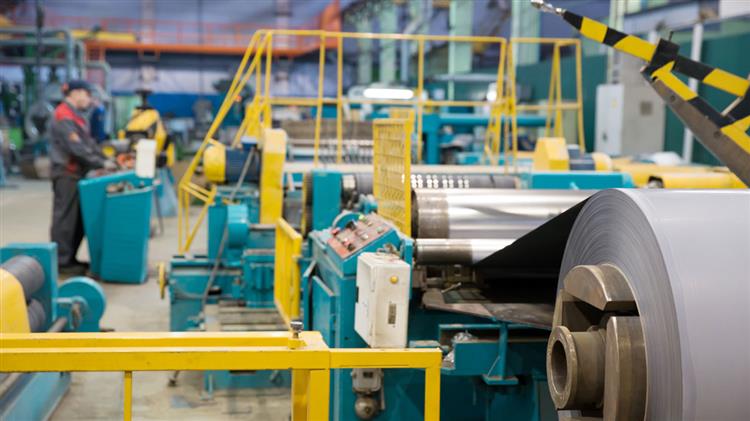
Waste Reduction
Introduction To Waste Reduction In Manufacturing
The manufacturing sector significantly impacts the environment. Production processes consume vast quantities of raw materials, resulting in substantial waste. With environmental concerns escalating, it’s crucial for manufacturing businesses to adopt environmentally friendly manufacturing practices. Not only do these practices contribute to a healthier planet, but they also bring financial benefits and compliance with governmental regulations.
The motivation behind waste reduction in manufacturing goes beyond environmental stewardship. Reducing waste can lead to considerable cost savings. By minimizing waste, companies can save on raw material costs, constituting a significant portion of overall expenses in many industries. Furthermore, efficient waste management can help businesses avoid hefty fines and penalties associated with non-compliance with environmental laws. These financial incentives make waste reduction a sensible choice for any forward-thinking manufacturer.
Effective Strategies For Waste Reduction
Implementing effective waste reduction strategies can make a significant difference. The following are some doable actions that manufacturers can take:
- Conducting Waste Audits: Regular waste audits help identify the types and quantities of waste produced, enabling targeted reduction efforts. By understanding waste generation patterns, manufacturers can pinpoint sources of inefficiency and work to eliminate them. These audits can lead to actionable insights that streamline operations and reduce waste at the source.
- Reevaluating Production Processes: Streamlining production processes to minimize waste generation is essential. It includes optimizing material usage and improving product design. For instance, adopting modular design techniques can reduce material waste. Additionally, revisiting production protocols to mitigate overproduction can also contribute to waste reduction.
- Employee Training: Educating employees about waste reduction techniques ensures everyone contributes to the effort. Employees are crucial in waste management as they are directly involved in daily operations. Training programs can raise awareness and empower employees to make more sustainable choices, fostering a culture of sustainability within the organization.
- Implementing Lean Manufacturing: Lean methods focus on minimizing waste while maximizing productivity. Techniques such as Just-In-Time (JIT) production can significantly reduce waste. By aligning production schedules with demand, JIT minimizes excess inventory and lowers storage costs, leading to a more efficient use of resources.
Successful Recycling Programs In The Industry
Several manufacturers have set exemplary recycling programs from which others can take inspiration. For instance, companies like General Motors have implemented ambitious recycling initiatives, diverting considerable waste from landfills. GM’s Zero Waste to Landfill program has achieved significant milestones, demonstrating the feasibility of large-scale recycling efforts.
Similarly, Coca-Cola has invested in recycling efforts to create a circular economy for its packaging materials. By 2030, they pledge to have collected and recycled one bottle or can for each one they sell. These examples highlight the potential for success when businesses commit to sustainable practices and show how recycling can be integrated effectively into business models.
Benefits Of Sustainable Practices
Adopting sustainable manufacturing practices offers numerous benefits:
- Environmental Impact: Reducing waste helps conserve natural resources and decreases pollution. Reducing waste results in a smaller carbon footprint and emissions, which helps combat climate change. Manufacturers can further decrease their reliance on virgin resources by using recycled materials.
- Cost Savings: Efficient use of materials and energy can significantly cut costs. Through waste reduction and recycling, companies can lower their operational costs. Reduced waste disposal fees and material costs lead to substantial financial savings.
- Regulatory Compliance: Staying ahead of environmental regulations protects businesses from legal issues. Compliance with laws avoids fines and positions companies as leaders in sustainability, which can be advantageous in markets prioritizing green practices.
- Brand Reputation: Consumers are increasingly favoring brands that demonstrate environmental responsibility. Engaging in sustainable practices can enhance a company’s reputation and attract eco-conscious customers. Businesses that are open and honest about their environmental initiatives may increase consumer loyalty and trust.
The Role Of Technology In Waste Reduction
Technological developments are essential for encouraging recycling and waste reduction. Innovations such as AI and IoT can optimize manufacturing processes to minimize waste. For example, smart sensors can monitor production in real time, enabling immediate adjustments to reduce material waste. These technologies provide detailed insights into production inefficiencies, allowing for timely interventions and improvements.
Additionally, advanced recycling technologies are improving the efficiency and scope of recycling efforts, making it easier for manufacturers to integrate recycled materials into their products. For example, chemical recycling methods can break down complex polymers into their essential components, which can be reused in production. It reduces waste and creates a closed-loop system that maximizes resource utilization.
Implementing A Sustainable Future
Transitioning to sustainable manufacturing practices requires a commitment from businesses at all levels. It involves an initial investment in time and resources, but the long-term benefits outweigh the costs. Investing in contemporary technology, establishing a continuous improvement culture, and establishing explicit sustainability goals are crucial. By disseminating success stories and best practices, companies encourage other players in the market to take similar actions.
Furthermore, collaborations and partnerships with other industry players, research institutions, and government bodies can amplify efforts toward waste reduction. By working collectively, the industry can drive innovations and develop comprehensive strategies that address waste management challenges more effectively.
Conclusion
As the manufacturing industry faces growing pressure to reduce its environmental impact, adopting effective waste reduction and recycling practices becomes increasingly important. Businesses can significantly reduce waste production by leveraging waste audits, lean manufacturing, and advanced recycling technologies. Embracing sustainability benefits the environment and enhances financial performance and compliance with regulations.
Real-life examples from industry leaders highlight the feasibility and advantages of these practices, providing a roadmap for others to follow. Together, through collective efforts, we can pave the way for a more sustainable manufacturing future. Reducing waste and recycling in manufacturing is an environmental imperative and a strategic business decision that promises long-term rewards.






